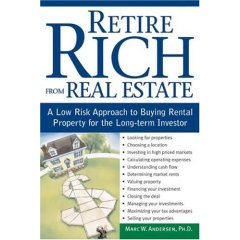Some time back I went to a book signing that Kevin Smith was doing to promote his book “My Boring-Ass Life” . The plan was that I’d tell Kevin that one of his previous books was my first inspiration to lose 70 pounds (it’s true!), he’d ask me for details, and after chatting for a bit he’d invite me to hit the road with him. We’d chat and be best friends forever in between takes for the movies he’d be working on (it’d be like a Clerks movie that would last the rest of my life).
Sadly he was interested that I’d lost weight, but his reaction was simply “70 pounds? That’s great dude!”. Kevin himself (I can use his first name since we’ve met and are now such good friends) has written about how he tries to avoid meeting his heroes, as they often let him down.
More recently I saw a trailer for “Expelled: No Intelligence Allowed“. I was excited that it was a project Ben Stein was associated with, as I find him wicked smart and funny. Once I realized the topic was the “unfair” treatment of people who try to bring religion into scientific curricula I had an unpleasant experience as Mr. Stein (alas, I have yet to meet him) was championing a cause that I find quite kooky.
As Superintendent Chalmers said “Prayer has no place in schools, just like facts have no place in organized religion”.
I have no problem reading articles or watching movies that present an alternative viewpoint from my own (I quite enjoy it). Mrs. Pillars (Mike’s wife) wisely pointed out at one of our get togethers that the best blogs to read are those that present views different from your own: they’re the ones that challenge you and help you grow. I love Michael Moore movies, even though I don’t buy a lot of his views on society. I’m looking forward to watching Expelled (but I’m not going to pay $10 to see it in the theater: it’s a renter).
It wasn’t that the movie was presenting a kooky idea that shook me, it was that Ben Stein was. I know what to expect from Michael Moore, but this took me by surprise. I’ve had similar experiences with bloggers who otherwise seem to be intelligent rationale people, but then they post one thing that seems to be way out in left field (or very poorly thought out). It makes me question their other ideas (past and present). Probably people have come across ideas I espouse and disagreed with them enough to become skeptical of other things I write. Every time we get together Mike says at least once that he’s “shocked at the depths of my ignorance”.
I wasn’t sure if the proper response was to re-think my position on the subject (intelligent design) or re-think my opinion on Ben Stein and the ideas he presents in various mediums.
In the end I came to the decision that Ben Stein is a human being. He has very clear, well founded ideas on many topics. He has goofy ideas on other topics. Different people will put his different ideas into different categories. Its probably good to never accept a source as an absolute authority. How much trust you put into someone’s ideas should be a continual evolution, and some skepticism should always remain.
Have you ever lost faith in a hero when you found out information about them or disagreed with a cause they supported?
 After reading the reviews on
After reading the reviews on